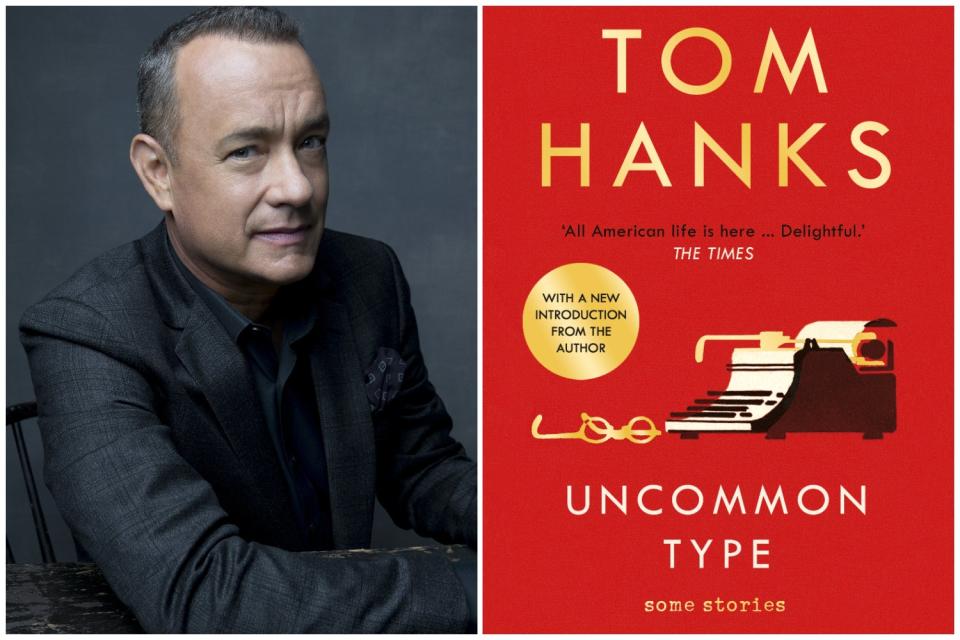Tom Hanks exclusive extract: My love affair with typewriters

A man rekindles a relationship with a beautiful woman he was at college with, only to realise in a matter of weeks that she is a perfectionist bully. A newly divorced mother of two moves into her new home and finds herself fending off attention from her next-door neighbour, but maybe he’s not, after all, quite as rapacious as he seems. A boy goes surfing on his favourite beach with his dad on his 19th birthday, and discovers his father has a hidden secret.
The unexpected turns that relationships can take thread their way through these 17 short stories, which originally came out three years ago, have sold 300k copies and are republished tomorrow in a reissued edition with a new introduction by Hanks.
Read our exclusive extract from the new introduction:
"A typewriter appears somehow like an Easter egg in every story in this collection; some of the stories are built on typewriters, but in others you might have to look a little deeper in order to find them. I was looking for some sort of device to spur each story in my head when I sat down to write it, and if I had no other challenge in front of me I said, well, where can I put a typewriter in this thing? And actually, it was a marvellous tool in order to get into the work. Most of the stories here began with the title. I would come up with the title first. I would try to find a little bit of prose poetry and have that spur me on. I wanted to write about buying my first good typewriter, for example; I knew that was going to be one of the stories in the book, and I didn’t want it to be about another confused guy, so it’s about a woman. It’s not exactly how I got my first typewriter, but I wanted to have this woman see a type writer and have something about it make it glow. She’s just at a swap-me, a flea market, and there was going to be this typewriter, and I wanted it to jump out at her somehow. The title I had was “These Are the Meditations of My Heart”. Somebody had typed it out on a little adhesive label and applied it to the typewriter, so if it hadn’t said “these are the meditations of my heart”, she would never have bought the typewriter.
This is what thrills me about typewriters: they are meant to do one thing and one thing only, and with the tiniest amount of effort and maintenance, they will last a thousand years. Now that means someone could have typed out a receipt or a lease on it in 1935, or someone could have written Slaughterhouse-Five on it in 1968, and in the year 3509 someone will write a story that has absolutely nothing to do with binary code or emojis on that same typewriter. Collecting typewriters is a lot cheaper than collecting cars, because those take up space; or pianos, they’re very large objects; or Wurlitzer organs – don’t start collecting those. Guitars are nice to collect because you can hang them up on the wall, right? But if you don’t play the guitar, well, what’s the point?
I have some typewriters that are just objects of art that do nothing but sit out and slowly gather dust. But most of them I have in working order, and I rotate them into use because you must use a typewriter the same way you should play a piano or fly a plane. Here’s what I get from a typewriter – if I am sending a note, or a letter, or a thankyou or a memo, or even writing a shopping list, the ink is not applied to the paper. A hammer with a letter on it hits a wet damp rag of ink, a ribbon, and imprints that letter, and that word, and that sentence, that para graph, that thought, into the actual fibres, the rag content of the paper. So it’s not on the paper, it’s in the paper, and in that state, provided you don’t burn it or set it out into the sun or crumple it and throw it away, it will last as long as the stones of Stonehenge.
Uncommon Type: Some Stories by Tom Hanks (Windmill , £8.99)

 Yahoo Finance
Yahoo Finance 